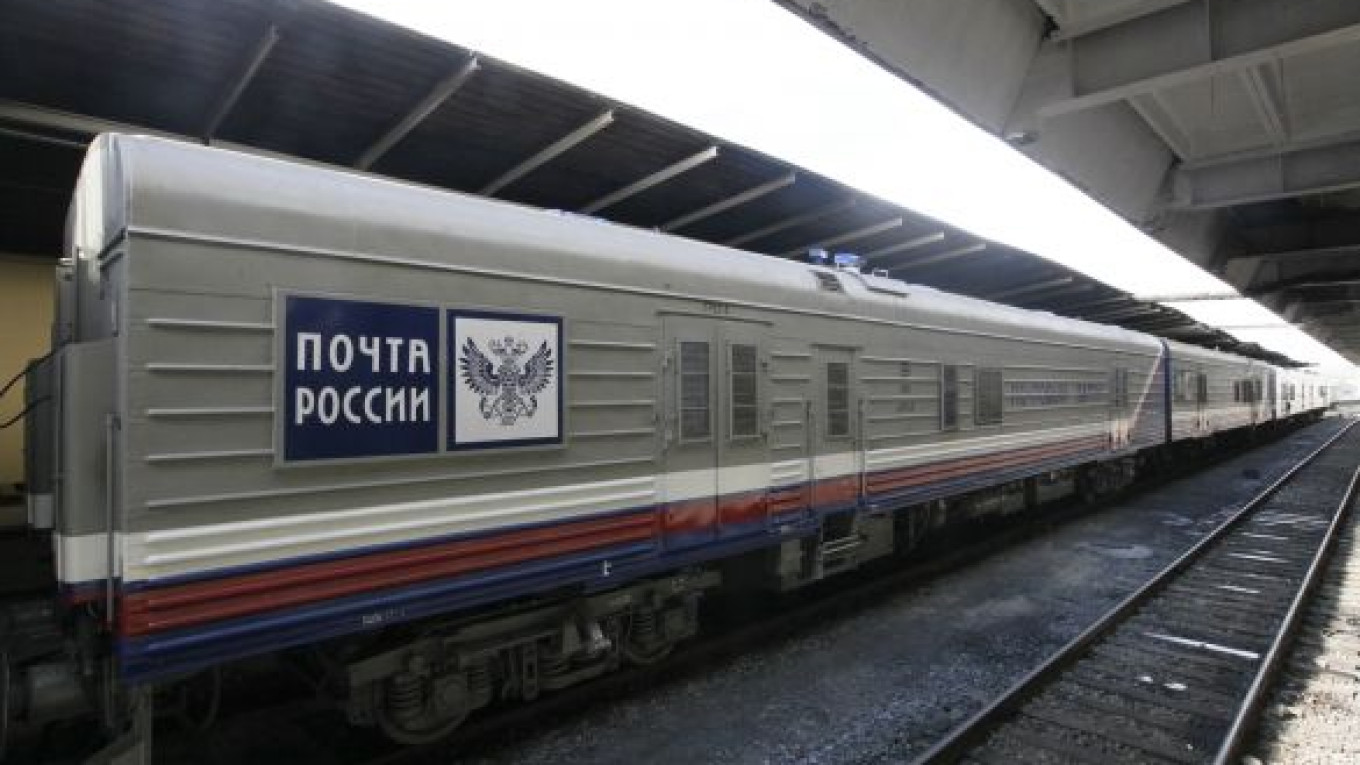Russian Railways countered a claim made earlier this week by Russian Post that the monopoly occasionally uncoupled rail cars containing mail, which along with the deficiencies in the work of other transportation companies was the cause of recent postal delivery delays.
The state-owned postal service also blamed airports for not having adequate facilities to process all the parcels.
Russian Railways, replying to the Russian Post accusations, said in a statement late Wednesday that its subsidiary, Federal Passenger Company, includes post train cars in its approved schedule in strict accordance with current laws.
The monopoly strives to increase the overall speed of passenger trains, the statement continued, and these efforts may limit the possibility to include luggage and mail cars in some of the trains due to the fact that they make less stops at minor stations.
But the railway monopoly says it fulfills its obligations, while Russian Post also blames the customs service for its recent problems.
The Federal Passenger Company will offer the postal service alternative routes of mail car delivery in such cases, Russian Railways said.
A scandal over the delayed mail broke out in April when media reported that 500 tons of mail had piled up at airports and customs.
Russian Post at the time accused customs officers of not being expeditious when handling incoming mail. The Federal Customs Service, in turn, blamed the mail company for not collecting inspected parcels. ?
At the end of May, the Prosecutor's office said it opened 13 cases against Russian Post for exceeding time limits for mail delivery, following an inspection of the service.
In April, the head of Russian Post, Alexander Kiselyov, was replaced by Dmitry Strashnov, who was previously in charge of mobile operator Tele 2 Russia.
According to experts, there are also other reasons why Russian Railways could be having trouble supplying services to Russian Post.
? "The number of passenger trains is decreasing because Russian Railways is canceling some of them in the regions where there are few passengers and, therefore, the service is unprofitable," said Anatoly Fedorenko, a professor at the logistics faculty of Higher School of Economics national research institute.
He said that a hold-up of mail at the customs is also conceivable since that service's main task is to collect customs duty. In addition, there is a low level of automation at customs, which could contribute to the delays.
But although some problems do exist when mail is being processed at customs or is transported via rail or air, the main problem is within Russian Post itself, Fedorenko said.
"The internal logistics between the subsidiaries of Russian Post is managed poorly," he said. "They have decreased the number of branches, their salaries for the staff are low and it all contributes to the overall problem of mail delays."
Contact the author at a.panin@imedia.ru
A Message from The Moscow Times:
Dear readers,
We are facing unprecedented challenges. Russia's Prosecutor General's Office has designated The Moscow Times as an "undesirable" organization, criminalizing our work and putting our staff at risk of prosecution. This follows our earlier unjust labeling as a "foreign agent."
These actions are direct attempts to silence independent journalism in Russia. The authorities claim our work "discredits the decisions of the Russian leadership." We see things differently: we strive to provide accurate, unbiased reporting on Russia.
We, the journalists of The Moscow Times, refuse to be silenced. But to continue our work, we need your help.
Your support, no matter how small, makes a world of difference. If you can, please support us monthly starting from just $2. It's quick to set up, and every contribution makes a significant impact.
By supporting The Moscow Times, you're defending open, independent journalism in the face of repression. Thank you for standing with us.
Remind me later.


